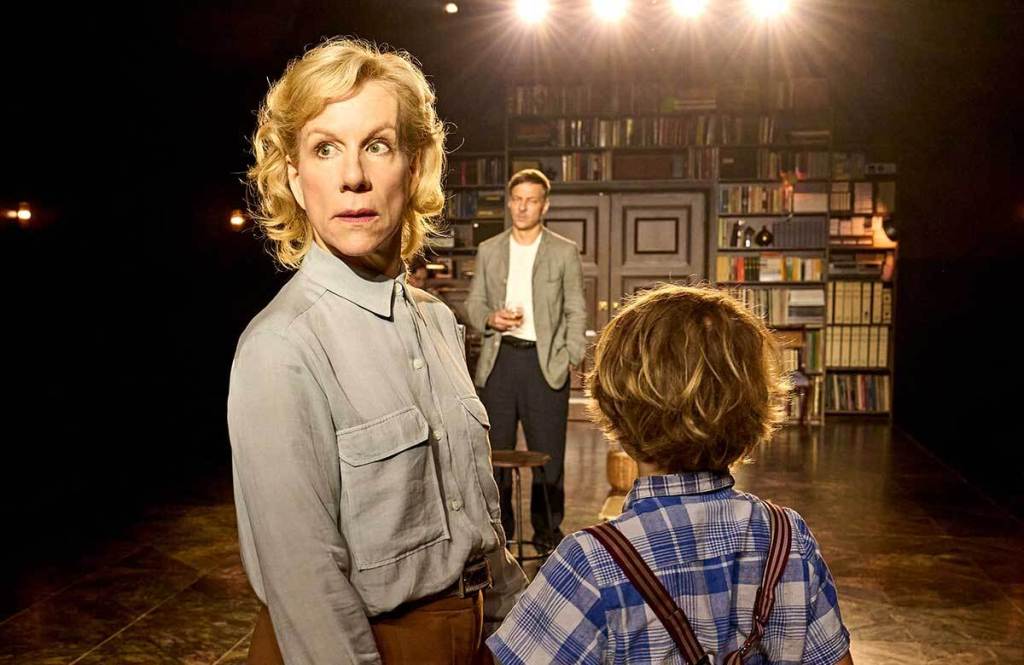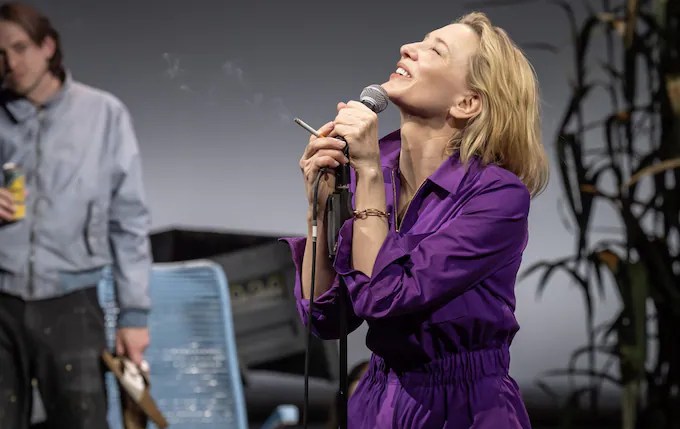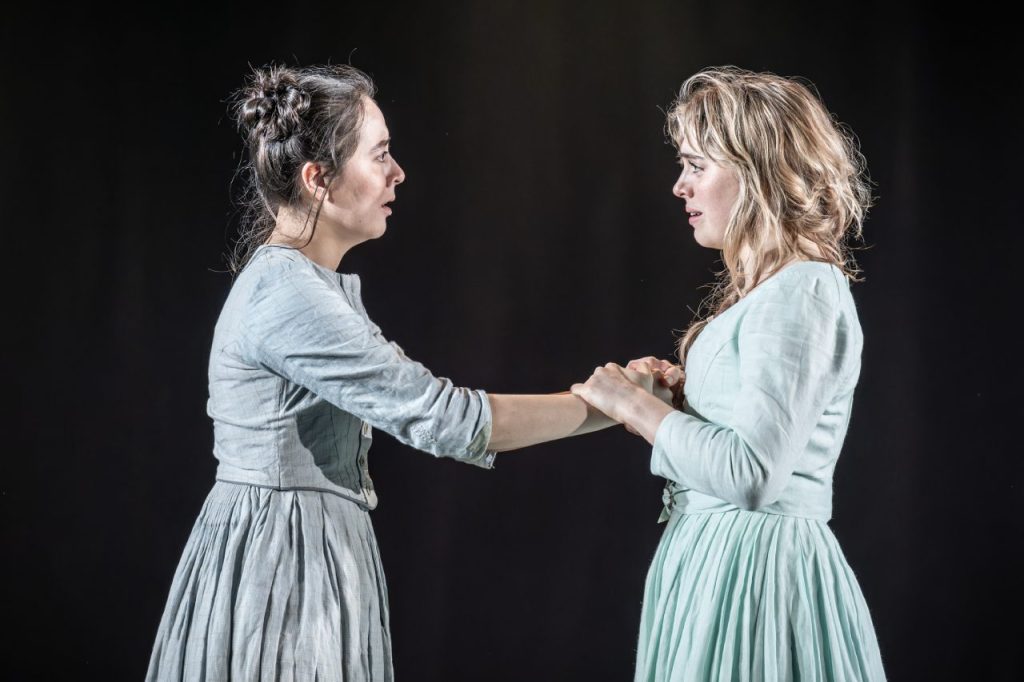
Juliet Stevenson, Tom Wlaschiha and Artie Wilkinson Hunt. Photo: Manuel Harlan
The Land of the Living by David Lan – National Theatre: Dorfman, London
Stephen Daldry’s production of David Lan’s new play, about the moral dilemmas in the aftermath of World War II and their lifelong consequences, piles the pressure on relentlessly. Juliet Stevenson plays Ruth, now in her 70s, living in London. Someone she hasn’t seen for 50 years arrives – Thomas (Tom Wlaschiha) – and we watch the story of what happened to him unfold over the next two and a half hours. Ruth was a young woman working for the UN in Bavaria, the American sector, after the German surrender. She and her small team of women look for children stolen by the Nazis from Eastern Europe and checked for Aryan characteristics. Those who passed the tests were given to German families with new names. Those who did not were murdered. Once the children are identified, the hard part begins. Thomas is with parents who hide his real identity, but are distraught when he is removed. Ruth becomes attached to him, saving him from the fate of many children – removed en masse by the Russians or by the Americans to be rehomed. But she doesn’t send him back to Poland either, where he might have rediscovered his original family. He has flown to London from New York to reveal the consequences.
Daldry crosses the play’s two time periods over one another – literally, with Ruth and Thomas occupying either end of a long traverse stage holding Miriam Buether’s London apartment set .while the events of 1945 play out across the middle. The pacing is effective, with the flashback action erupting into the civilised lives they have both built. Stevenson is remarkable, her calm demeanour drawing the audience’s attention to the emotions shifting tectonically below the surface. Wlaschiha is blank faced, traumatised, and expressing himself through music – although it’s a shame he stands aside from the action for much of the play, providing a catalyst rather than participating. The character Thomas is a pianist, and Wlaschiha has remarkable skills too, performing live on the apartment piano as a number of other characters also do, including Stevenson. It is an ensemble performance, with strong performances from Kate Duchêne as Ruth’s mother, Marek Oravec and Cosima Shaw as Thomas’s adopted parents and Caroline Lonq as Elise in a cast that includes several European stage actors appearing at the National Theatre for the first time.
Lan has uncovered a little documented set of events from a time that is much pored over, and has constructed a rigorous, emotionally hard-hitting story. It is an excellent vehicle for the talents of its very high end cast and production team.




